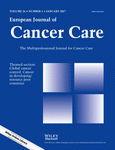Prognostic implications of RB1 tumour suppressor gene alterations in the clinical outcome of human osteosarcoma: a meta-analysis
Abstract
Primary osteosarcoma is the most frequent malignant bone cancer in children and teenagers. Genetic alterations at the retinoblastoma 1 (RB1) gene has been implicated in the development and progression of human osteosarcoma. Here, we performed a meta-analysis to examine the impact of RB1 mutations on the survival of osteosarcoma patients, the risk of metastasis and the histological response of osteosarcoma to chemotherapy. A systemic review of the Medline, Embase, Scopus and Cochrane Library yielded 12 eligible studies with 491 patients for this study. Forest plots resulting from our meta-analyses illustrate that loss of RB1 function results in a 1.62-fold increase in the mortality rate for osteosarcoma patients (RR = 1.62, 95% CI: 1.23–2.13; Z = 3.44, P = 0.0006), a significant increase in osteosarcoma metastasis (OR = 3.95, 95% CI: 1.86–8.38; Z = 3.57; P = 0.0004), and a significant reduction in the histological response of osteosarcoma to chemotherapy (OR = 0.35; 95% CI: 0.13–0.94; Z = −2.08; P = 0.038). Additionally, the nearly symmetrical funnel plot (Egger's test, t = 1.15, P = 0.288) indicates absence of publication bias regarding the meta-analysis that examined the correlation of RB1 alterations with the survival rate for osteosarcoma patients. Our findings suggest that RB1 alterations may serve as a prognostic marker for the management of osteosarcoma patients.




